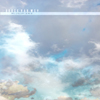 Brock Van Wey's Echospace debut is the first album to be released under his own name, but its content will not surprise anyone familiar with his previous ambient work as BVDub. It probably won't surprise anyone that this is a great album either: so much so, in fact, that Echospace head Stephen Hitchell was inspired to make an accompanying bonus album of his own reinterpretations. In this case it works, but I sure hope that does not become standard industry practice.
Brock Van Wey's Echospace debut is the first album to be released under his own name, but its content will not surprise anyone familiar with his previous ambient work as BVDub. It probably won't surprise anyone that this is a great album either: so much so, in fact, that Echospace head Stephen Hitchell was inspired to make an accompanying bonus album of his own reinterpretations. In this case it works, but I sure hope that does not become standard industry practice.
White Clouds Drift On and On was explicitly influenced by the works of Steve Roach, Gas, Brian Eno, Hans-Joachim Roedelius, Basic Channel, and classical minimalist composers like Steve Reich. Obviously, it is incredibly easy to humiliate yourself when you namecheck folks like Brian Eno, but such comparisons are not unreasonable here. For the most part, Van Wey avoids pastiche or explicit allusion and manages to forge a sound that is most assuredly his own. His success is mostly due to his impressive skill as a producer: lots of people make ambient albums based around warm synthesizer washes, but Van Wey creates uniquely vibrant, ever-shifting, and often surprising soundscapes by tweaking it all with hiss, lengthy decays, complex layering, and dynamic use of manipulated field recordings and elements like backwards acoustic guitars.
Among the influences cited, White Clouds Drift On and On seems most overtly reminiscent of Wolfgang Voigt’s Gas project, but with a distinctly cinematic bent: Van Wey seems to be quite fond of lush, billowing synth-strings (which dominate the opening “Too Little Too Late”). That particular piece is a bit too melodramatic and aggressively sad, but the subsequent tracks are all rather sublime. Especially “I Knew Happiness Once,” which endlessly repeats a warm, undulating synth loop and augments it with high-end sizzle, shimmering guitar, and very striking digitally altered vocals (probably from an African field recording). The fragile and floating melancholy of the song is mesmerizing, but it initially seems inhumanly cool and remote. Consequently, when the electronically distressed vocals slowly creep in, it sounds like my drugged, heavenly bliss cloud is being rended by very something very real and heartsick. “A Gentle Hand to Hold” also stands out, largely due to its subtly warped shoegazer guitar motif and warmly bittersweet synths. Essentially this is a great album from start to finish (with the arguable exception of “Too Little Too Late,” though I was intermittently charmed by its distant yowling vocals). Each individual song is a small gem of quivering, shifting heaven: listening to this album is like being inside a slow-motion volcano that spouts delightful soft things like feathers and kittens instead of rocks and magma, but also occasionally spews desolation and heartbreak. (I say that about every album though)
Hitchell’s re-envisions of Van Wey’s material (as Intrusion, amusingly) differ quite radically from the source album. Thankfully Hitchell’s…ahem… intrusion into the album is largely a welcome one, and rather ambitious as well: in general, Van Wey’s material is pushed extremely low in the mix, leaving only hisses, sizzles, or subterranean surges to subtlety allude to each track’s origins. Hitchell does maintain a very similar tone to the original album though, but the focus is shifted completely away from the source ambient washes and replaced with slow, deep percussion and warm dubby synth stabs. For the most part, the reinterpretation album is very nuanced, rhythmic, and immersive, but it also seems weirdly dated: the omnipresent minimal pulsing house beat and the heavily reverbed keyboards are conspicuously reminiscent of what was coming out on Mille Plateaux five years ago, like Twerk or Electric Birds (fortunately I happen like that stuff). Also, occasionally Hitchell missteps and gets a bit too slick and conventional: his languorous conga rhythm and gentle synth washes in “A Gentle Hand to Hold” would not be out of place in an upscale coffeehouse or a softcore porno with aspirations of sophistication. At least, upon first listen anyway (there’s quite a bit of cool understated studio wizardry happening, so the track is not a complete failure).
Despite some small flaws, Van Wey has crafted an instant ambient classic: White Clouds Drift On and On is completely engulfing and features enough subtle quirks to make keep it that way for many repeat listenings. This is oceanic in the best sense of the word, as what seems like placid beauty is roiling with activity upon closer inspection. Naturally, the Intrusion versions are not quite up to the same level, but those are unreasonably tall expectations to match: Hitchell’s tracks are packed full of buried studio flourishes that make for a memorable headphone album in its own right.
Samples:
Read More

